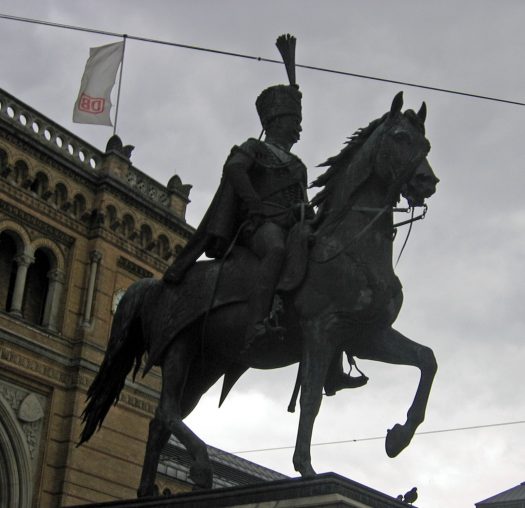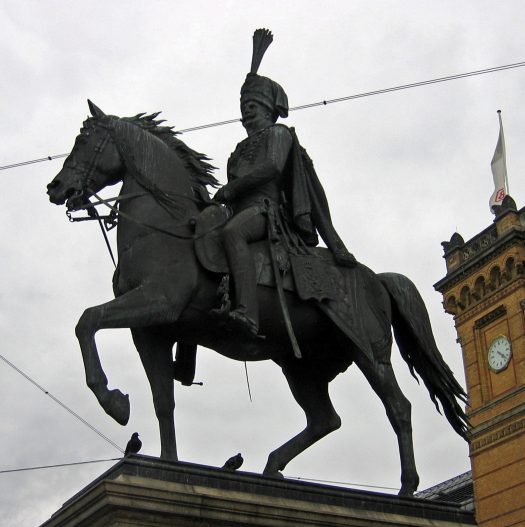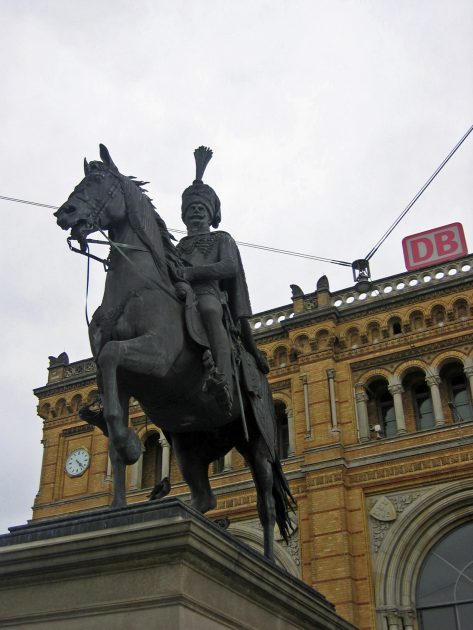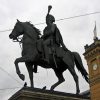Home | Ernst August King of Hanover
- CountryGermany
- Town:Hanover
-
Year of creation:1861
- Rider(s):Ernst August King of Hanover
(1771 – 1851) was King of Hanover from 1837 until his death. As the fifth son of King George III of the United Kingdom and Hanover, initially he seemed unlikely to become a monarch, but none of his elder brothers had a legitimate son. Ernest succeeded in Hanover under Salic law, which barred women from the succession, ending the personal union between Britain and Hanover that had begun in 1714.
Ernest was born in London but was sent to Hanover in his adolescence for his education and military training. Although his mother Queen Charlotte disapproved of his marriage in 1815 to her twice-widowed niece, Frederica of Mecklenburg-Strelitz, it proved happy. The King’s eldest son, George, Prince of Wales (later King George IV), had one child, Charlotte, who was expected to become the British queen, but she died in 1817, giving Ernest some prospect of succeeding to the British throne as well as the Hanoverian one. However, his older brother Edward Augustus, Duke of Kent, fathered the eventual British heir, Victoria, in 1819 shortly before the birth of Ernest’s only child, George.
Following the death of his brother King Wilhelm IV, Ernest became Hanover’s first resident ruler since George I. He had a generally successful fourteen-year reign but excited controversy near its start when he dismissed the Göttingen Seven, including the Brothers Grimm, from their professorial positions for agitating against his policies. A revolution in 1848 was quickly put down in Hanover. He was succeeded by his son George.
- Sculptor(s):Wolff, Albert
(1815 – 1892) was a German sculptor and medalist.
-
The large equestrian statue of King Ernst August, erected in a square named after him in front of Hanover Central Station, is inscribed with his name and the words (in German) “To the father of the nation from his loyal people.” It is a popular meeting place; in the local phrase, people arrange to meet unterm Schwanz or “under the tail” (that is, of the horse which the King rides).












